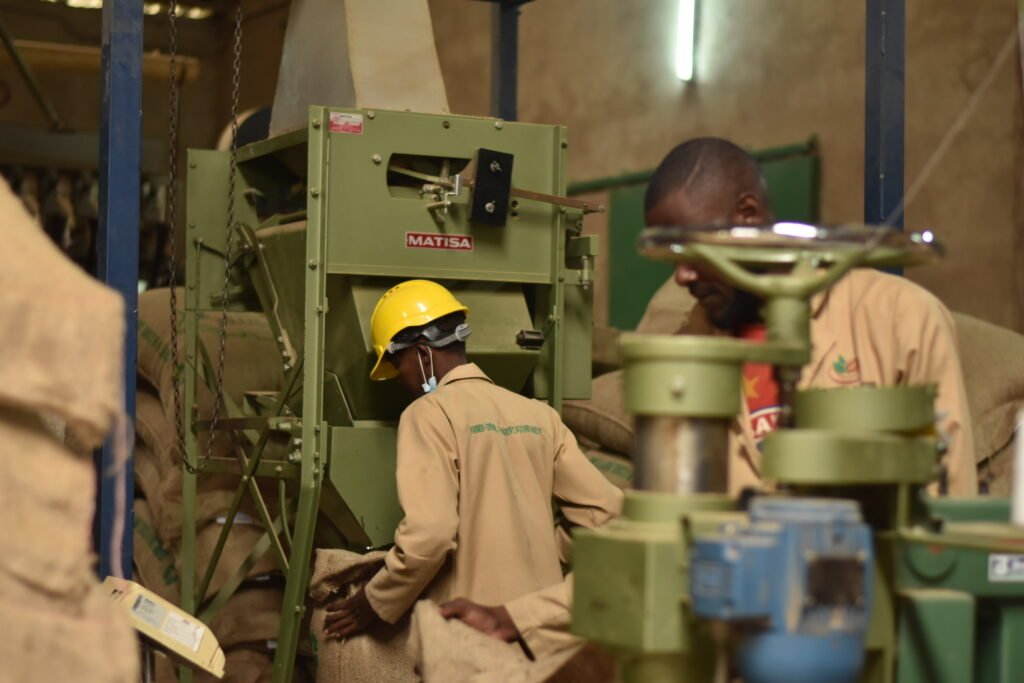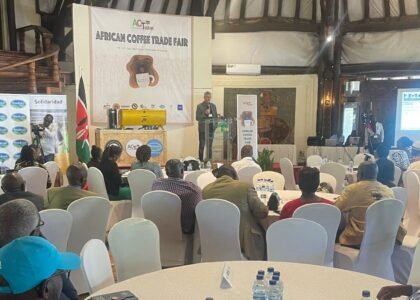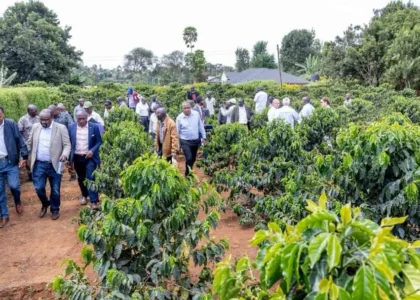After inheriting a legacy marred by farmer exploitation and lack of transparency, New KPCU is now on a trajectory of growth, striving to break free from the shackles of its past and emerge as a beacon of trust in the coffee sector
By Smart Farner Writer
The New Kenya Planters Co-operative Union (New KPCU) is swiftly undergoing a remarkable transformation.
After inheriting a legacy marred by farmer exploitation and a lack of transparency, evident in the dilapidated infrastructure of the old Kenya Planters Co-operative Union (KPCU), the revamped entity is striving to break free from the shackles of its dismal past. It is, indeed, emerging as a beacon of transparency and trust in the coffee sector.
It has embarked on a journey to redefine the relationship between coffee farmers and their co-operative union, breathing new life into an industry long plagued by mistrust and malaise.
Not long ago, the mere mention of KPCU sparked off painful memories of farmer exploitation, opaque practices, and infrastructure in disrepair. Once a robust and prosperous co-operative, it had devolved into a source of frustration and distrust among its members.
Picture yourself as a farmer, eagerly delivering your parchment to the co-operative for milling, grading, and marketing, only to be left in the dark afterward. You’re unaware of when your beans were milled, the grades they received, or who purchased them and for how much. Your inquiries are met with excuses and delays, leaving your beans unprocessed or unsold.

To compound matters, the co-operative would offer meagre loans as the new season approaches, ostensibly to support your production efforts. Yet, come harvest time, you would receive a paltry payment alongside a detailed list of deductions for operational costs, leaving you with a fraction of your expected earnings.
The cycle repeated annually, leaving you mired in debt from constant borrowing to cover essential expenses such as school fees and food.
That was the sad story of the old KPCU despite the international acclaim and high prices that Kenyan coffee commanded.
“For a long time now, our coffee has been bought expensively in the export market due to its quality. Multi-nationals that trade in coffee always thought of a Kenyan coffee grower as a well-off person, assuming the money they paid for the product, a good amount, got into the farmers’ pockets,” said Mr Timothy Muthondio Mirugi, the managing director of the newly-rebranded farmers’ union, the New KPCU.
He spoke during an interview with Smart Farmer magazine.
But this was not the case as the old KPCU would exploit farmers by buying cheaply, only to resell the coffee at a higher markup. Farmers were coerced into accepting loans at exorbitant interest rates, worsening their financial woes.
The greed and mismanagement ultimately led to the union’s bankruptcy. Mr Mirugi recounted how funds were embezzled in the 1980s, plunging both the union and its members into deep debt and poverty.
“In the 1980s money was plundered from the farmers’ union by a section of its leadership, plunging the union into heavy debts and farmers into abject poverty,” he said.
In 2009, the old KPCU was placed under receivership after failing to repay debts totalling Ksh700 million to creditors, including the Kenya Commercial Bank, lawyers, and farmers. Then, in 2015, it faced another receivership due to a non-performing loan of Ksh185 million from KCB, in addition to owing Ksh50 million to coffee suppliers.
As a result of lost assets and embezzled funds, he added, growers were driven to despair, some abandoning their coffee trees altogether to pursue other ventures. Production plummeted from 128,000 metric tonnes to 35,000 tonnes per season.
“For many farmers, coffee ceased to be profitable, leading to the conversion of coffee estates into real estate ventures, especially on the outskirts of Nairobi,” Mr Mirugi explained.
Finally, on November 4, 2019, New KPCU was established as a State entity under the State Corporations Act Cap 446 and incorporated as a Public Limited Company (PLC) according to the provisions of the Company’s Act 2015.
It began operations in June 2020, and in July, the State cleared the Ksh185 million debt owed by old KPCU to KCB, liberating the union from nearly a decade of receivership chains.
“Though we inherited a run-down institution with lost assets, the transformation into New KPCU was necessary to prevent the union from being privatised, which would have disadvantaged farmers,” said Mr Mirugi.
The transition to New KPCU has been tough and marked by a series of court battles and debt clearances, thanks to the government’s relentless efforts to regain farmers’ trust. This, he added, despite the transition having occurred at the height of the Covid-19 pandemic. The union has been implementing changes to regain trust among farmers.
Instituting transparency
To ensure New KPCU Plc operates under a Board of Directors appointed in December 2019, and inaugurated in January 2020; these directors are responsible for key decisions regarding its operations. Despite leadership changes since its inception, the union has implemented reforms to instil transparency.
With renewed vigour, the union set out to restore confidence in the coffee industry, bridging the gap between farmers and markets with innovative solutions and open practices.
Through streamlined processes and open communication, farmers now have a seat at the table, empowered to track their parchment from delivery to sale and receive timely payments.
“Unlike the previous entity, NKPCU emphasises transparency, allowing farmers to monitor their coffee throughout the milling and marketing process. Farmers are engaged at every stage, fostering trust and accountability,” said Mr Mirugi.
According to the farmers interviewed by Smart Farmer Africa, one noticeable change is their ability to track their parchments from delivery to New KPCU plants through milling, sorting, selling, and payment.
Today, the results speak for themselves. Farmers such as Mr David Njoroge of the Ritho Farmers’ Co-operative attest to the positive changes brought about by New KPCU.
“Today, our coffee cannot be milled, graded, and sold without our consent. It’s no longer lost in some ‘black hole’ as it was under the defunct miller,” said the chairman of the Kiambu-based co-operative, which has 1,688 members.
Through real-time tracking systems and direct settlement mechanisms, the union has ushered in a new era of accountability, ensuring that farmers receive fair compensation for their crops.
Farmers now receive their pay within five days of their coffee being sold, compared to over five months under the old regime. The union has implemented a system that automatically notifies farmers of payment based on current dollar exchange rates.
“It automatically notifies farmers about payments based on the current dollar exchange rates,” said Mr Mirugi.
Farmers can also easily access daily coffee-grade prices, enabling them to engage directly with markets. The system is designed to embrace a direct settlement system (DSS), allowing farmers to receive direct coffee payments immediately after buyers’ payments, thus bypassing intermediaries.


